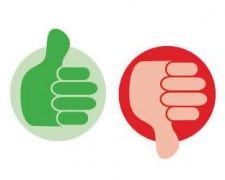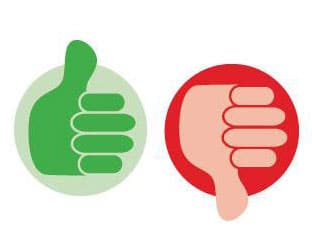 Jason Chaffetz’s Internet Radio Fairness Act attracted immediate and enthusiastic approval from a number of interested industry parties. Here’s a look at what was being said about the bill.
Jason Chaffetz’s Internet Radio Fairness Act attracted immediate and enthusiastic approval from a number of interested industry parties. Here’s a look at what was being said about the bill.
* National Association of Broadcasters: “NAB appreciates the leadership of Reps. Chaffetz and Polis and Sen. Wyden and strongly supports legislative efforts to establish fair webcast streaming rates. NAB will work with the bill’s sponsors and all interested parties to create broadcast radio streaming rates that promote new distribution platforms and new revenue streams that foster the future growth of music.”
* Tim Westergren, Pandora: “Royalty rates for different formats of digital radio are astonishingly unequal. Currently, internet radio shoulders the largest royalty burden, far higher than any other form of radio. Last year, Pandora paid roughly 50 percent of its total revenue in royalties, more than six times the percentage paid by SiriusXM. The Internet Radio Fairness Act of 2012 addresses this discriminatory practice of favoring one form of digital radio over another by extending the common standard to include internet radio. The discrimination against internet radio is not only fundamentally unfair, it also undermines the growth of an exciting new form of radio that listeners have embraced, and that provides unprecedented exposure and revenue for thousands of working artists. A more equitable rate structure would drive investment and innovation, bringing greater choice for consumers, and ultimately greater revenue for performing artists. This bill is a win for consumers, artists and technology innovation.”
* Michael Petricone, Consumer Electronics Association: “Under today’s outdated rules, Internet radio providers are forced to pay a significantly larger percentage of royalties than their competitors. In some cases, Internet radio providers pay half of their annual revenues in performance royalties, while other music providers pay less than 10 percent. This irrational and unfair royalty system hinders investment and innovation in Internet radio. The changes proposed by the Internet Radio Fairness Act are simple and long overdue. They will drive innovation, investment and jobs, not just in Internet radio but also in the hardware used to access Internet services. They will benefit consumers by enabling exciting new digital music services and technologies. Finally, they will benefit artists by creating a vibrant online music ecosystem that compensates artists and performers. we urge the House and Senate to pass the Internet Radio Fairness Act as quickly as possible.”
* Kurt Hanson, AccuRadio: “This bill will provide fairness for internet radio by putting it under the 801(b) standard for determining copyright royalty rates. The 801(b) standard is used in many industries and it has worked well for many years, including for other forms of digital radio like satellite radio, radio on cable TV, and even by record labels in cases where they are the copyright users. Internet radio currently operates under a different system: In 1998, Congress passed a law for Internet radio (in the Digital Millennium Copyright Act (DMCA)), instructing the Copyright Royalty Board (CRB) to set a rate ‘that a willing buyer and a willing seller would agree to.’ The difficult-to-interpret language of that standard has been a nightmare for our industry ever since, leading to CRB decisions that have forced Internet radio companies to pay unreasonably high royalty rates and hindering innovation and growth.”
“The 801(b) standard is a set of four criteria the U.S. Copyright Office has historically used to determine a royalty rate:
** Maximize the availability of creative works to the public;
** Insure a fair return for copyright owners and a fair income for copyright users;
** Reflect relative roles of capital investment, cost, and risk, and;
** Minimize disruptive impact on the industries involved.
“These criteria seem, and in fact are, reasonable. Not only will passage of the bill benefit webcasters, but it will also benefit artists by expanding the market for digital radio providers, creating more opportunities for artists to be paid for their work. Passage of the Internet Radio Fairness Act will help level the playing field for Internet radio.”





